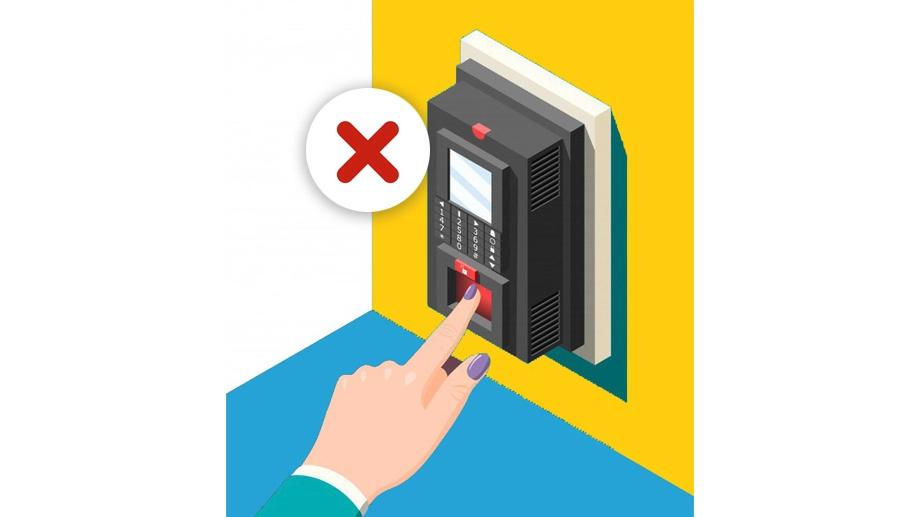According to the American Payroll Association (APA) about 75% of U.S. businesses are affected by time theft and the expensive payroll error it causes.
Sometimes, this begins as a friendly gesture between colleagues. However, the impact of this over time can be more than you realize.
74% of employers face payroll fraud, losing upwards of 2.2% of gross payroll in illegal damages incurred by buddy punching.
Buddy punching can cause damage to your team’s productivity, the accuracy of timesheets and payroll hours calculation, as well as to the accounting of billable work hours. It is a serious issue that can cost you money, as it will take time and resources to fix.

People can buddy punch in a number of ways. Some report to work earlier than normally scheduled, so they’ll be able to clock out before closing time. Buddy punching can also involve reporting to work later than scheduled so that the employee clocking in and out will report to work at a later time as well.
When an employee is running late to work, they may ask a co-worker to clock them in. That way, their payroll time will be counted even though they aren’t at the office.
At the end of the working day, if a team member wants to leave early, but isn’t able to give an official notice because they want to get some extra work done, they may ask a colleague to punch them out a bit later. These are all examples of time not actually worked, but time that companies have to pay out.
While buddy punching may seem like a harmless, even convenient, practice at first glance, the logic behind your employees taking these “free” hours of overtime results in fraudulent hours because they round up to costly payroll errors. These errors further translate into payroll expenses that you have to cover, even though no work was conducted during these hours.
However, buddy punching is not as simple as it seems. This is a clear form of time theft and is illegal in most states. Even if you ask your employees to do this extra work because you are short on personnel, they are still breaking the law if they punch in for each other.
Why does buddy punching happen?
We’ve heard from many people that their office or culture has a dynamic where some employees routinely buddy punch, or clock in for each other to earn time and a half or double time. We’re here to say “no more.” Learn about why buddy punching happens in your team or business and how you can make sure employees clock in for themselves—not their friends. It’s one way you can boost employee engagement at your company and increase accountability.
How to identify buddy punching?
To help you identify buddy punching, we’ve put together some signs to look out for.
One way to handle buddy punching is for the team leads, working under your supervision, to keep track of their employees’ attendance.
Start tracking your workforce with digital time clock systems that make it easy to verify the working hours of your employees, thus ensuring that they are paid the right amount.
Ways to prevent buddy punching
Because buddy punching is considered a form of time theft, it’s important to put procedures in place to prevent buddy punching from happening.
Because buddy punching is considered a form of time theft, it’s important to put procedures in place to prevent buddy punching from happening.
1. Create a clear time theft policy
It is our policy that employees are honest and truthful in completing timesheets. We hope that all employees keep this in mind when submitting their time records, as all incidents of buddy punching and time theft will be investigated.
2. Make buddy punching difficult and undesirable
You can create safeguards against buddy punching by having straightforward policies. If you have a comprehensive time clocking system, it can add another layer of security that would make buddy punching unfeasible.
3. Use time tracking software
Business owners often choose customized time clock software to prevent buddy punching.
The best solution is to choose a location-enabled time tracking system, which protects your data against buddy punching.
GPS tracking and geofenced job sites can help you automate how your team members clock in and out. This is especially useful for field teams, enabling seamless time and attendance tracking.
We use software that allows us to monitor not only the hours that people have worked but also their location during the time they are on the clock. Each team member can use a specific device, eliminating the possibility of logging in another person and buddy punching.
And that’s just the beginning. Geofencing allows you to set up your job site locations so that team members are automatically clocked in or sent a reminder to clock in when they arrive. You can also auto-start and stop time tracking unless they are within a designated area, which makes buddy punching nearly impossible. You can customize it to meet your requirements.
Biometric time clocks let you clock in and out of your shifts using fingerprints or other biometric data, but you’ll want to be sure that your employees are aware of any legal requirements for using this type of technology first.
Here are a few tips to help you create an effective buddy punching policy.
Documenting a buddy punching policy is not enough. You have to integrate your time tracking policy into the way your team operates and enforce it in a way that makes it part of operations. Records need to be reviewed regularly and action needs to be taken if violations are detected.
Rely on open communication
The communication of your buddy punching policy is just as important as the policy itself. It needs to be clear, concise, and easily followed. You’ll want to try and get the buy-in of your team by explaining why buddy punching harms the company in different ways and addressing the reasons they might choose buddy punching in the first place.
Make sure you explain to your employees how they can handle sticking to their normal schedule when they need to leave early or arrive later than planned. Encouraging your employees to get involved in activities to help the company goes a long way toward boosting morale.
Inform people of the consequences
You should communicate with your employees that rules are rules, but you should also expect that they will be dedicated to the company.
To make sure people realize you’re truly going to follow the buddy punching rules, it may be best to set disciplinary actions that follow if a person uses another employee’s access card or clocks in for them in any other way.
Begin Time Theft Prevention With Comprehensive Time And Attendance Tracking
Time theft is a serious problem in the workplace, and it can hurt your business in a number of ways. Buddy punching is one of the most common forms of time theft, and it can lead to decreased productivity and increased payroll costs, among others.
A field service business that adopted a time tracking system recently had this to say:
“We are using a time tracking system in order to reduce timecard fraud and to better manage our installation and service technician labor. Each day, we pass service and installation appointment booking information from our Microsoft D365 CRM solution to the time tracking system. This tells the system where the employees are supposed to be. We have the employees clock on and off jobs in the system, and we then pass timecard information each night to ADP, our payroll provider. The system’s reporting capabilities give us a clear picture of each employee’s whereabouts when they clock on and off jobs.
An automated time tracking user
So far we are very pleased with this solution.”
We’ve got your back with automatic logging of worker activity. Comprehensive time and attendance tracking with GPS tracking, and geofencing, empowers you to ensure that your field employees log only hours that they have actually worked, preventing time theft. It can make a big difference to your business.



